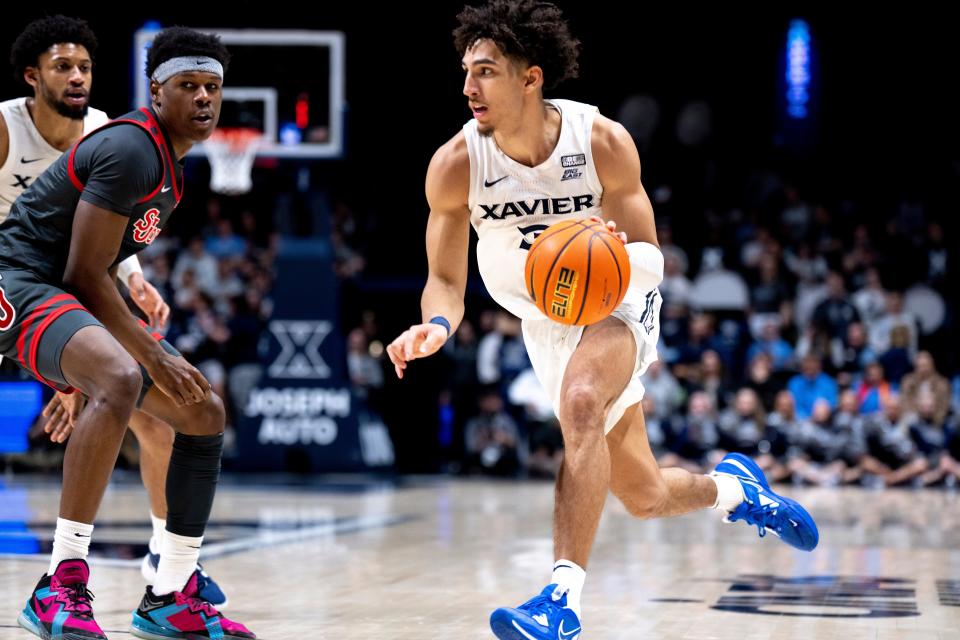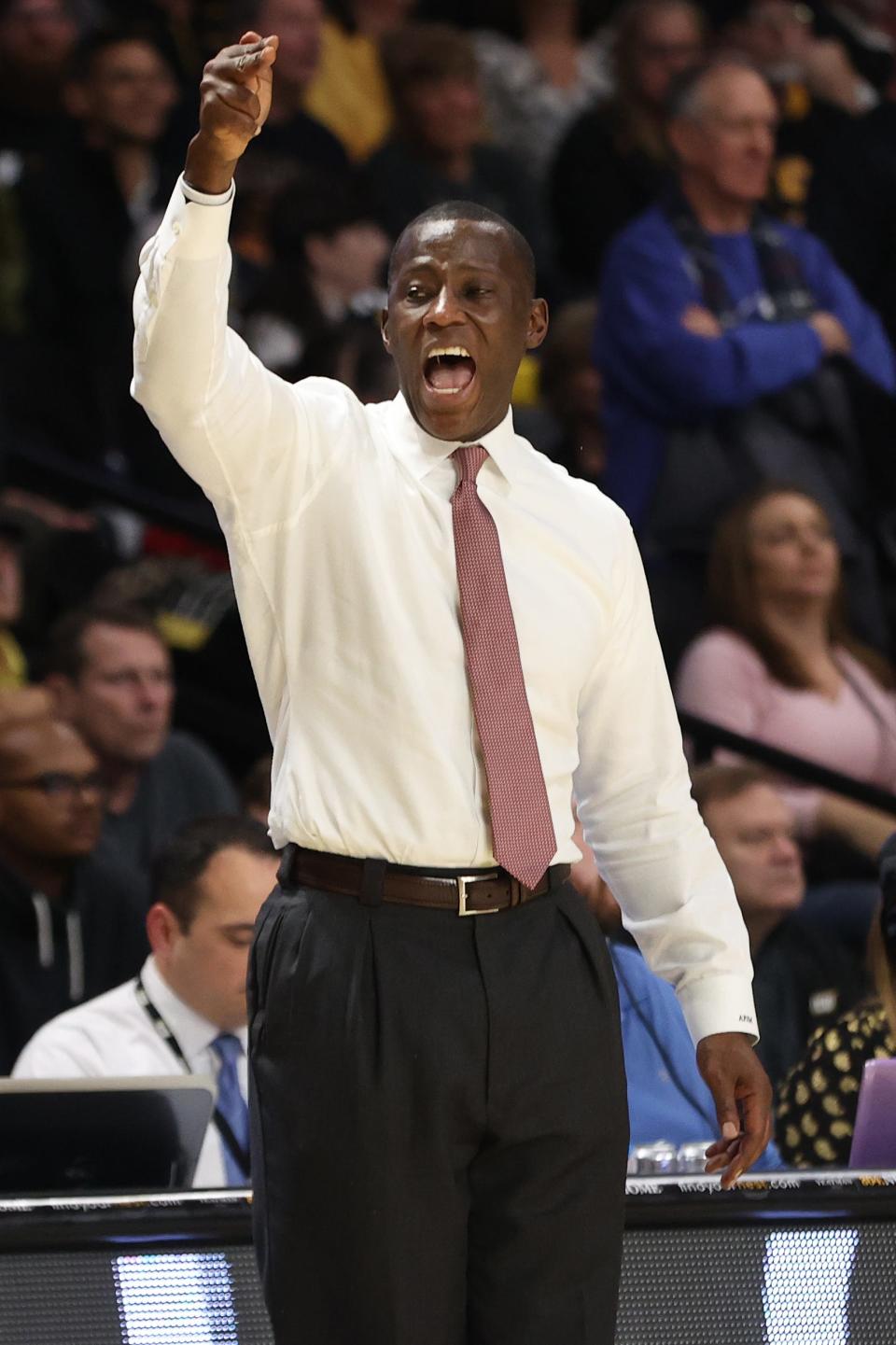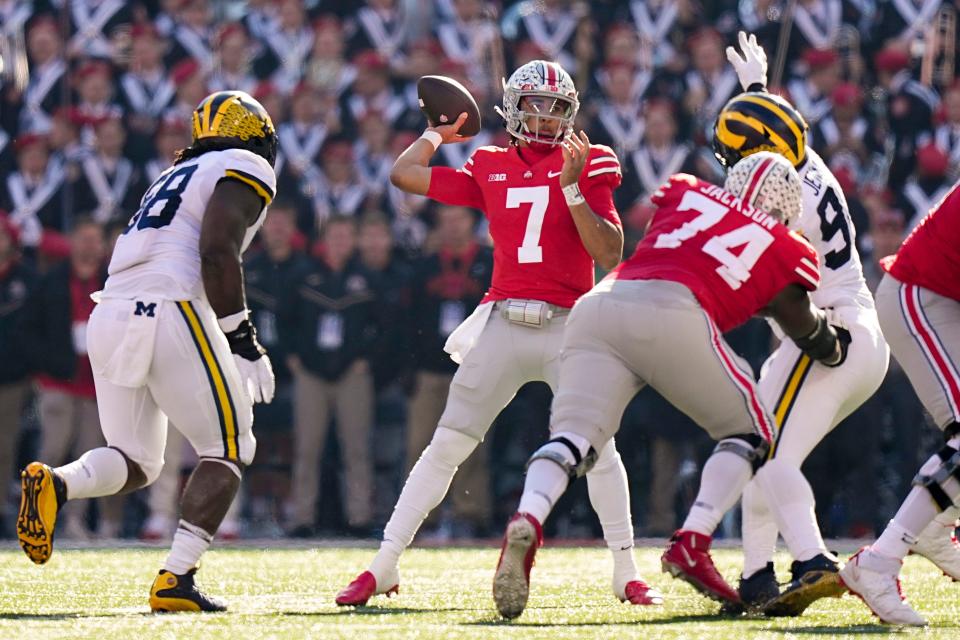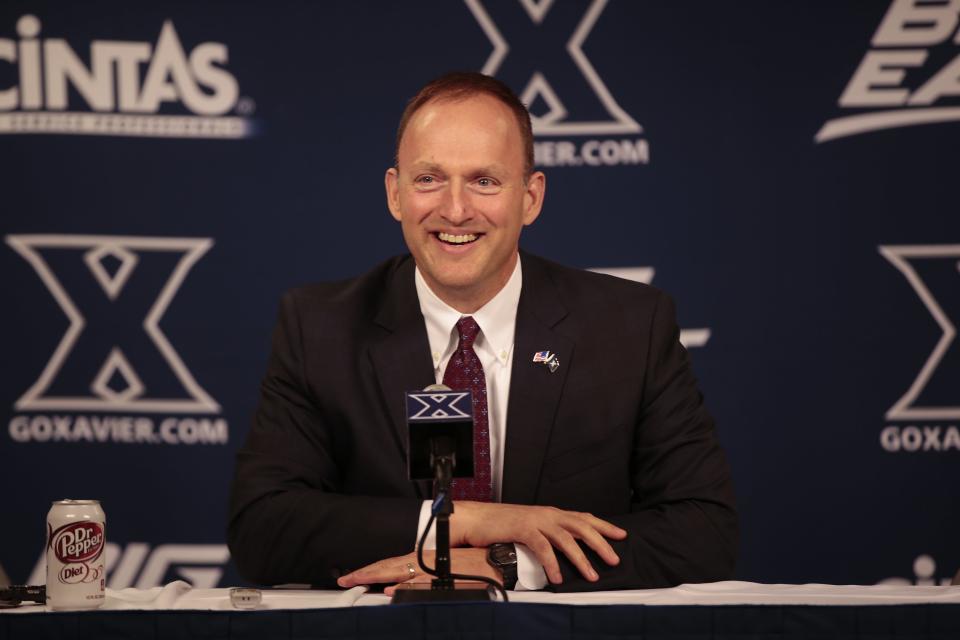Sports betting raises harassment concerns for student-athletes. How schools are responding

Just weeks after sports betting became legal in Ohio, the state's lead gambling regulator had to address the issue of gamblers harassing college athletes.
“It was something I wasn’t planning on talking about today,” said Matt Schuler, executive director of the Ohio Casino Control Commission. “But I thought that it was important enough to bring up to make sure that anyone who’s listening understands that this type of behavior is not OK for anybody in any venue at all.”
Schuler spoke during the group's first meeting of the year on Jan. 18, per PlayOhio, a gambling news organization. Sports betting became legal in Ohio on Jan. 1.
Ohio schools and athletic departments were against sports gambling years ago before it became legal. Now, those same universities must juggle obstacles that come with legalized betting, including any potential harassment of student-athletes.
An offensive renaissance:How a year of exploration changed Sean Miller
Cincinnati Bearcats:'I'm fueled by caffeine and the Holy Spirit.' UC taps Niko Palazeti to strengthen Bearcats
College athletes faced online harassment well before sports betting
Schuler's statement came a day after the men's basketball coach at the University of Dayton raised concerns about player harassment from gamblers upset about losing bets.
In a postgame press conference Jan. 17, Dayton Flyers head coach Anthony Grant said his players had received hateful messages from disgruntled gamblers on social media. The team lost to Virginia Commonwealth University on Jan. 13, which Grant suggested spurred the harassment.
"There's some laws that have recently been enacted, that really to me – it could really change the landscape of what college sports is all about," he said. "And when we have people that make it about themselves and attack kids because of their own agenda, it sickens me. They have families. They don't deserve that. Mental health is real. So if you're a Flyer fan, I ask you just to understand what you're dealing with, with young people. All right? Take a step back, and reevaluate your priorities. And if you can't, we don't need you."

Social media harassment against college athletes was an issue even before sports betting came into the picture.
E.J. Liddell, a former Ohio State University basketball player, posted messages from social media users wishing death and threatening to kill him after his team’s loss to Oral Roberts University in the 2021 NCAA Men's Basketball Tournament.
Ohio State quarterback C.J. Stroud received death threats after the Buckeyes lost to Michigan on Nov. 26, his mother told Sports Illustrated.

Meanwhile, student-athletes continue to report elevated mental health concerns. A 2021 NCAA survey administered to Division I, II and III schools showed mental exhaustion, anxiety and depression among collegiate athletes were about as prevalent as they were in 2020, and 1.5 to 2 times higher than pre-pandemic numbers.
Ohio's DI universities were against collegiate sports betting
Ohio schools and athletic departments knew legalized sports betting was coming to the state, and tried to fight it.
Thirteen DI athletic directors sent a letter to Larry Obhof, former president of the Ohio Senate, and Larry Householder, former Ohio House speaker, in 2019 opposing collegiate sports gambling. Among those to sign the letter included Greg Christopher of Xavier University, Ohio State’s Gene Smith, David Sayler of Miami University and former University of Cincinnati athletic director Mike Bohn.

“Permitting gambling on college sports in Ohio poses risks of increased incidents of problem gambling, threats to the mental and financial well-being of our student populations and the integrity of university athletic programs,” the letter, which The Enquirer obtained from Christopher, read.
Another concern with college sports betting, voiced by Christopher, is proposition bets. Also called prop bets, these allow gamblers to place wagers on specific players or occurrences that might happen during the game, rather than just the final score.
For example, a bettor could place money on how many points they believe a player will record in a given game, or which team they think will score first.
"A player like (Cincinnati Reds first baseman) Joey Votto ... between (his) salary and him wanting to protect that, and the lifestyle that he leads, he can insulate himself to some degree against the concerns around prop betting or individual betting on Joey or the Reds," Christopher told The Enquirer. "I don't think that can happen necessarily for college athletes. The idea that fellow students can be in the student section betting on their classmates; when a Xavier player goes to the free-throw line, he's got classmates and people he potentially could be living with that can be betting on him at that point. That's concerning."
Prop betting on collegiate games is prohibited in Colorado, Iowa and Tennessee. All in-state collegiate sports betting is prohibited in Nebraska, New Jersey, New York, Rhode Island, South Dakota, Virginia, Washington, Wisconsin and Delaware.
Local universities will respond to harassment on a case-by-case basis
Bettors who are caught harassing athletes on social media after losing a bet will be put on the Ohio Lottery Commission's involuntary exclusion list, prohibiting them from placing any bets in the state, the commission said.
Before sports betting became legal Jan. 1, the involuntary exclusion list was reserved for individuals who posed a "threat to the integrity of casino gaming," banning them from gambling at all Ohio casinos. There are 10 people on the list, and offenses range from tampering with bets to assaulting casino staff. The most recent person was added in 2014.
Christopher says Xavier staff have not been notified of any of its student-athletes receiving threatening messages since sports gambling became legal. However, the private university has dealt with similar situations in the past, often from people who are anonymous, making it difficult to identify harassers.
Christopher said Xavier's athletic department will handle future situations of harassment on a case-by-case basis. He said the university has notified law enforcement in the past when the identity of the person sending harmful messages was known.

Alex Reid, director of compliance at Miami University, said the Oxford school also hasn't been notified of any harassment since Jan. 1. Harassment will be handled on a case-by-case basis in regard to the athletic department's response and whether authorities will be notified, Reid said.
The University of Cincinnati athletic department declined to comment for this article.
Athletic departments regularly prepare student-athletes for potential challenges they could face during their time as college athletes. Sports gambling is another obstacle schools must address.
"There's a handful of what I would call third-rail-type issues that our student-athletes can find themselves facing, and there's no doubt that gambling is one of those," Christopher said. "So, it's a regular topic that we make sure we talk with our student-athletes (about), and especially the sports like basketball where there is active betting on the games, we make sure that they're educated and aware."
This article originally appeared on Cincinnati Enquirer: Sports betting raises harassment fears for college athletes

